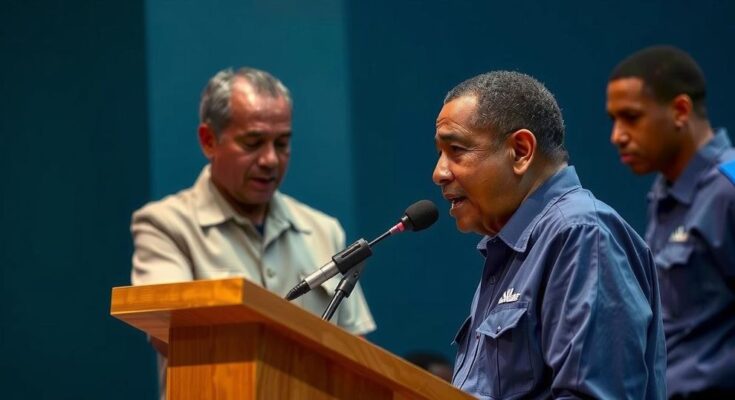Mauritius is conducting a parliamentary election amid allegations of phone-tapping and potential fraud. Prime Minister Pravind Jugnauth seeks re-election following the return of the Chagos Islands from the UK, but faces challenges from the opposition led by former Prime Minister Navin Ramgoolam. Concerns over governance and corruption have emerged, raising questions about the country’s democratic integrity as it heads to the polls.
Mauritius is currently engaged in a significant parliamentary election, marked by allegations of fraud and a phone-tapping scandal that has raised concerns about the integrity of the democratic process. This election follows a historic agreement whereby the United Kingdom returned sovereignty of the Chagos Islands to Mauritius, enhancing the political backdrop in which Prime Minister Pravind Jugnauth is seeking re-election. However, the campaign has been overshadowed by the leak of surreptitiously recorded conversations involving politicians, which has led to public outcry and a temporary ban on social media platforms by the government, although this decision was later rescinded in the face of backlash. Voters are divided between two main factions: Jugnauth’s Militant Socialist Movement coalition, currently in power, and the Opposition Alliance of Change, led by former Prime Minister Navin Ramgoolam. Both parties have assured voters of their commitment to tackling poverty and addressing rising living costs ahead of the elections. Ramgoolam emphasized the potential for electoral fraud, urging voters to ensure accountability by personally marking their ballots. The election commission has stated that police presence at polling stations aims to maintain order and transparency throughout the voting process. As the nation has achieved substantial stability and economic growth since gaining independence in 1968, it faces increasing scrutiny regarding governance and potential corruption. While Mauritius has historically been viewed as a model democracy in Africa, experts have noted a decline in the effectiveness of institutional checks and balances over recent years. The current parliamentary battle holds significant implications for the governance and political landscape of the island nation moving forward. Although the recent Chagos agreement represents a critical achievement for Jugnauth’s government, concerns remain regarding the influence of external military interests, particularly from the United States. The electoral choices made by the populace in this contentious environment will shape the future direction of Mauritian society and its longstanding political stability.
The parliamentary elections in Mauritius are set against a background of a recent agreement that returned the Chagos Islands to the nation from the United Kingdom, marking progress in its colonial legacy. However, this optimistic political climate has become tainted by controversy over allegations of a systematic phone-tapping scandal affecting multiple officials within the government and the media. The ensuing public reaction has led to calls for transparency and concern about rising authoritarianism in a nation previously lauded for stable governance. The upcoming elections not only reflect the ongoing political integrity issues but also represent a struggle between established political families and emerging political movements advocating for systemic change and anti-corruption measures. These choices present a decisive moment for Mauritius, as its citizens weigh the prospects of continued progress or potential regression in democratic values.
In conclusion, the parliamentary elections in Mauritius stand at a crossroads, entangled in allegations of misconduct and public distrust fueled by the phone-tapping scandal. The contest between the ruling Militant Socialist Movement and the Alliance of Change highlights the pressing need for accountability in governance. Mauritians are tasked with making critical decisions that will impact their country’s democratic health and political ethos in the coming years, especially considering the implications of the recent Chagos sovereignty agreement.
Original Source: www.bryantimes.com




